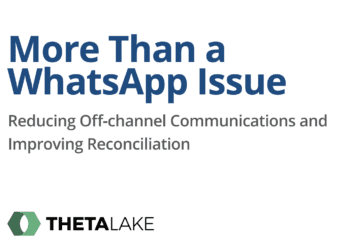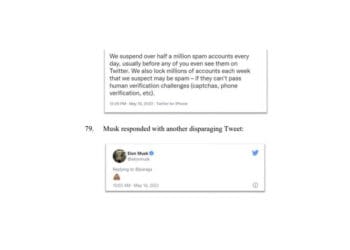Increasingly, companies are hiring chief data officers and chief data analytics officers to oversee their data environment. But while the need for these professionals is catching on, studies show they tend not to stay long. Manta CEO Tomas Kratky looks at the root causes of abbreviated tenures for CDOs.
The chief data officer (CDO) role has spread like wildfire in the past decade. Of more than 100 Fortune 1000 organizations surveyed, 83% reported that they’ve appointed a CDO or chief data analytics officer (CDAO), up from a mere 12% in 2012. But CDOs also have a fairly short average tenure — just 2.5 years.
Why does an enterprise need a CDO? Most enterprises use over 10,000 applications with millions of data assets representing various business concepts. These data environments are, by definition, extremely diverse. The CDO role grew from the need for a dedicated executive to oversee such a diverse data environment, to protect it and to make use of it. The ideal purview of the CDO is to ensure their enterprise can thrive in this federated environment, maintaining high-quality data capable of facilitating daily decision-making while enabling effective connections between different datasets.
Ideal is the key word. As critical as it is difficult, the role of CDO demands an understanding of complex data environments and the ability to create cultural change to maximize that data’s value. Without well-defined expectations, newly hired CDOs face an impossible task: Change everything — and quickly.
Building a Defense-in-Depth Culture to Combat Phishing
Phishing attempts are only growing more sophisticated by the day, and effective cybersecurity means defending all the vectors of attack, particularly the human ones, as they’re the most vulnerable. KnowBe4’s Perry Carpenter talks about establishing a defense-in-depth strategy and how it starts with your culture.
Read moreThe CDO’s responsibilities lack clear definition
Most CDOs face an uphill battle to grasp the role’s expectations. A recent survey found only 40% of companies report the CDO/CDAO role is well understood within their organization. Even fewer — 36% — said the CDO/CDAO role is successful and well-established.
Even during the hiring process, CDO expectations are frustratingly vague. One organization may expect a CDO to act as a change agent, while another sees the executive as a driver of digital transformation. Others want someone to helm their compliance efforts — a data specialist who moonlights as a risk professional to ensure the safety and security of organizational data. And there’s always an organization that wants all of the above — from one person.
Researchers analyzing the CDO role over the past decade found seven key types of CDO positions, each requiring different skills and experience. These CDO personas have their respective success metrics. While no single person could perform well in all of these roles simultaneously, at least one CDO told researchers they were evaluated across all seven areas. By failing to offer clear expectations, organizations set CDOs up for failure.
The CDO’s job is about people and processes more than data
The CDO’s ability to leverage their organization’s data has less to do with the volume of the data itself or the complexity of their company’s tech stack and more to do with the processes and people involved. Success lies in understanding how the organization is structured — and in doing so, understanding how best to use data efficiently and effectively.
CDOs must collaborate with many parties, making changes and aligning groups. This collaborative work requires support from the CEO. Unfortunately, many other members of the C-suite don’t understand this aspect of the CDO’s job. A successful CDO must not just rein in the data — they must act as the conduit for a data-driven culture throughout the organization.
But building a data-driven culture is easier said than done. Less than a quarter of organizations consider themselves data-driven, and only 20% say they’ve developed a data culture within their companies. Data leaders agree that cultural issues like organizational alignment, processes and receptivity to change prevent the CDO from creating greater business value.
Fostering a data-driven culture requires a new approach to how organizations talk about data, too. Most leaders still discuss data as if it’s a small part of a company, when in reality, data runs through every element of a business. Data makes a modern company. Leaders’ short-sighted view of data results in disjointed data environments and produces software engineers and technical professionals who struggle to communicate clearly with colleagues outside their technical specialty.
When an organization discovers the rampant disconnect within its ranks, the task of closing the gaps falls to the CDO. And while the data mess leaders find themselves in may have taken years — or decades — to manifest, the CDO is expected to fix the problem in a year, maybe two. Failure to do so is unacceptable.
Many CDOs try to boil the ocean
Many CDOs enter the role and immediately begin planning a major overhaul of the company’s data infrastructure. While reconfigured infrastructure would likely enable critical data use cases, few CDOs make it that far. A complex infrastructure project takes time to complete and activate, leaving many CDOs with little to show for their work.
Because they fail to gain easy wins at the beginning of their tenure, infrastructure-minded CDOs are often let go before building their masterpiece. CDOs must deliver value early rather than starting with such a lofty undertaking.
A newly hired CDO should follow the money, tying data strategies to business unit strategies and goals. And they must focus on the most powerful data use cases and their related data sets. Early successes build goodwill and trust, allowing CDOs to tackle more complex infrastructure projects yielding long-term benefits.
The proactive CDO
For too long, data conversations have revolved around risk, with CDOs and other data professionals taking a defensive approach to data. An AWS survey found that today’s CDOs are increasingly shifting to offensive activities. These leaders prioritize data governance over risk and define their success in terms of business objectives rather than technical achievements.
How do business-driven CDOs make meaningful progress early in their tenure to build out data-driven cultures and contribute to revenue growth? They need visibility into their data environment. End-to-end visibility must be a priority whether companies have 10 critical data elements or 10,000. This visibility also equips everyone in the company with a greater understanding of how data flows, improving trust.
Hiring a CDO is the first step. From communicating data management needs to overhauling infrastructure, the expectations facing CDOs can be unclear and overwhelming. CDOs and organizations have different visions of the role’s purpose, making it difficult for CDOs to succeed and fueling their turnover. CDOs must navigate people and processes as they try to lead the charge to develop a data-driven culture. They must make sense of complex data environments to focus on critical data needs. And as they seek to define their purpose more clearly, they must prioritize business objectives that align with the rest of the C-suite to ensure short- and long-term success for themselves and their organization.



 Tomas Kratky is the CEO and founder of Manta. Prior to Manta, he led Profinit, one of the most successful consulting businesses in central Europe and has 20-plus years of experience as an accomplished software developer and IT consultant. Kratky graduated with honors from the Czech Technical University in Prague and holds a master’s degree in software engineering.
Tomas Kratky is the CEO and founder of Manta. Prior to Manta, he led Profinit, one of the most successful consulting businesses in central Europe and has 20-plus years of experience as an accomplished software developer and IT consultant. Kratky graduated with honors from the Czech Technical University in Prague and holds a master’s degree in software engineering.







